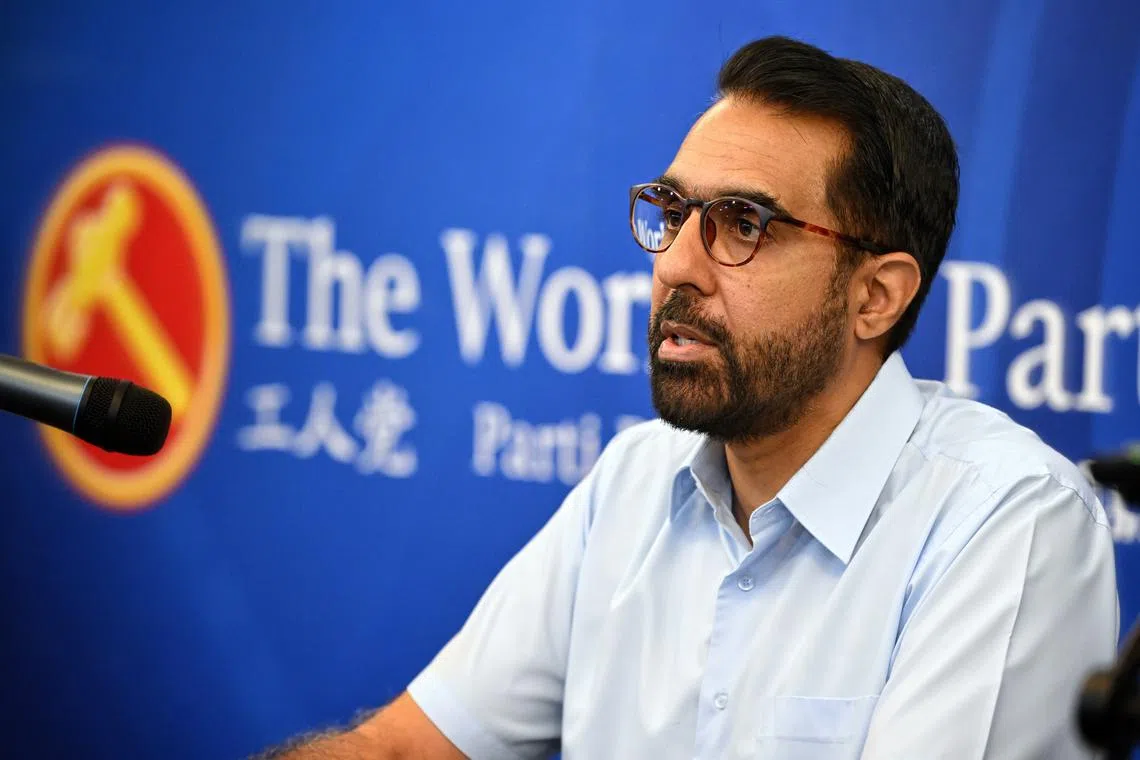WP chief Pritam Singh questions fairness of electoral boundaries report
Sign up now: Get ST's newsletters delivered to your inbox

Workers' Party chief Pritam Singh called the boundary changes “one of the most radical redrawing of boundaries Singapore has seen in recent memory”.
PHOTO: ST FILE
Follow topic:
SINGAPORE – Workers’ Party chief Pritam Singh has questioned the fairness of Singapore’s new electoral boundaries, in his first remarks on the topic since the Electoral Boundaries Review Committee (EBRC) report
In a Facebook post on March 25, the Leader of the Opposition called the changes “one of the most radical redrawing of boundaries Singapore has seen in recent memory”.
Many political observers had expressed incredulity that population growth was cited as the reason for these revisions, he noted.
“There has been significant public commentary, especially by young Singaporeans questioning the fairness of the political boundary redrawing process by the PAP government,” Mr Singh said.
He added: “Boundaries are important, and the reasons that justify their changes, matter. A lot.”
The EBRC determines electoral boundaries
The committee had not explained its decisions in several decades. But this year, it stated that population shifts were a key driver for changes in certain areas, which had knock-on effects on boundaries in surrounding constituencies.
In particular, voter numbers in Pasir Ris-Punggol, Sembawang and Tampines GRCs, as well as the single seats of Hong Kah North and Potong Pasir, have increased by between 13,000 and 23,000 in each constituency since the 2020 polls.
Mr Singh called on the People’s Action Party to make public its information on how people in individual precincts voted, including those in the areas of Marine Parade GRC that have been ceded to East Coast GRC, and “allow the public to draw its own conclusions”.
He referenced a remark made during the 2016 Bukit Batok by-election by then Prime Minister Lee Hsien Loong about Mr Murali Pillai’s performance in Aljunied during the 2015 General Election.
Mr Lee, who is now Senior Minister, said during the by-election that Mr Murali would already have been an Aljunied MP if the division that he oversaw as grassroots adviser and PAP branch chairman had been a single-seat ward in 2015.
This was because Mr Murali got more votes in his ward than the Workers’ Party did, although his team collectively lost with 49.04 per cent of the vote.
Mr Murali prevailed in the 2016 Bukit Batok by-election and is now Minister of State for Law and Transport.
“Apart from highlighting that no opposition constituency is a safe seat and the risk of an opposition wipeout is an ever-existent reality, Lee’s revelation was instructive,” Mr Singh said. “The results of individual wards and precincts, even in GRCs, are closely watched.”
He added that the EBRC’s work is important for ordinary Singaporeans because all citizens seek a meaningful stake in the country, including a “functioning and robust social compact that creates trust”.
Mr Singh noted that the Forward Singapore report
But such values can lose their meaning when “question marks about fairness abound right from square one, on an issue as fundamental as how we organise ourselves politically as a nation”, he said.
He added: “Opaque institutions like the EBRC carry a real risk of being unwittingly divisive, putting paid to a united people – ironically, one that is needed most at a time of important geopolitical shifts, potential external shocks and demographic transition.
“A report can be called anything. Forward Singapore, Singapore Together, Singapore 21 or Turbo-charge Singapore.”
Mr Singh concluded by saying that more can be done to build a more balanced political system.
“All the latest version of the EBRC report does is to show us how much further we have to go to build a democratic society, based on justice and equality. But each generation can and must do its part. And become one united people,” he said.

